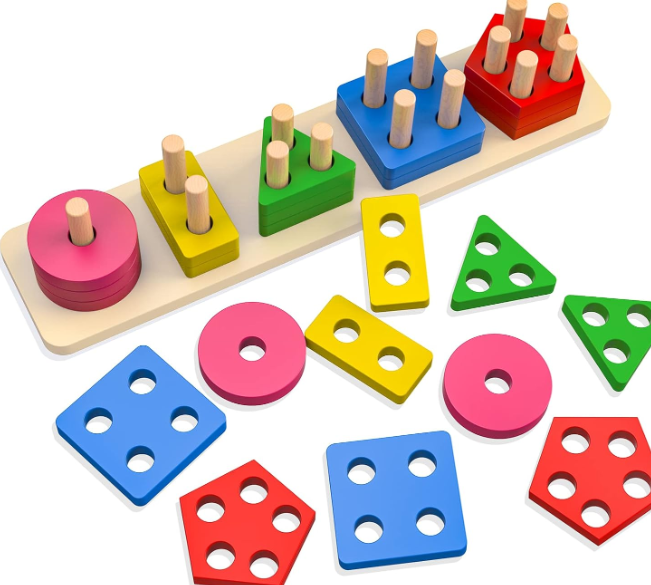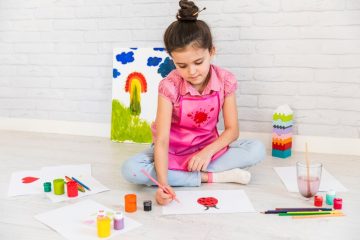Emotional development is a crucial aspect of a child’s growth, influencing their ability to understand and manage their feelings, relate to others, and navigate social interactions. Montessori toys, with their emphasis on purposeful play and hands-on learning, play a significant role in nurturing emotional intelligence in 3-year-olds. In this article, we’ll explore how Montessori toys for 3-year-olds support emotional development and recommend some excellent choices for fostering emotional growth in young children.
Understanding Emotional Development in Early Childhood
Emotional development encompasses a range of skills and abilities that enable children to recognize and regulate their emotions, empathize with others, and build meaningful relationships. At the age of three, children are beginning to express a wide range of emotions and are learning to understand the emotions of others.
How Montessori Toys Support Emotional Development
Montessori toys are thoughtfully designed to promote emotional growth through engaging and meaningful play experiences:
- Promoting Self-Regulation: Toys that require focus and concentration, such as puzzles and building sets, help children develop patience and self-control as they work towards a goal.
- Encouraging Empathy: Role-playing toys, like dolls or animal figures, allow children to explore different roles and perspectives, promoting empathy and understanding of others’ emotions.
- Building Confidence: Toys that children can manipulate and master independently, such as threading beads or pouring activities, build confidence and a sense of accomplishment.
- Supporting Social Skills: Cooperative play materials, such as pretend play kitchens or collaborative building projects, encourage sharing, communication, and teamwork.
Benefits of Montessori Toys for Emotional Development
Montessori toys provide numerous benefits that contribute to emotional well-being and growth in 3-year-olds:
- Enhanced Self-Awareness: Activities like mirror play or emotion-themed books help children recognize and understand their own emotions, fostering self-awareness.
- Improved Social Competence: By engaging in pretend play and interactive games, children learn to negotiate roles, resolve conflicts, and cooperate with others.
- Stress Relief and Relaxation: Sensory toys like stress balls or calming sensory bins provide opportunities for children to relax, unwind, and manage stress.
- Positive Reinforcement: Toys that offer immediate feedback and rewards, such as sorting games or stacking toys, reinforce positive behaviors and encourage perseverance.
Top Montessori Toys for Supporting Emotional Development
Choosing the right toys can significantly impact your child’s emotional growth and well-being. Here are some recommended Montessori toys for nurturing emotional development in 3-year-olds:
- Emotion Flashcards: These cards depict different facial expressions and emotions, helping children identify and understand various feelings.
- Feelings Board: A board with interchangeable facial expressions allows children to match and discuss different emotions, promoting empathy and emotional vocabulary.
- Pretend Play Sets: Kitchen sets, doctor kits, or tool sets encourage role-playing and social interaction, fostering empathy and cooperative play.
- Cuddle Toys: Soft, comforting plush toys or dolls provide companionship and security, supporting emotional regulation and soothing.
- Art Supplies: Drawing, painting, and sculpting materials allow children to express emotions creatively and explore different forms of self-expression.
Tips for Maximizing Emotional Development with Montessori Toys
To effectively support your child’s emotional development with Montessori toys, consider these practical tips:
- Encourage Verbal Expression: Prompt your child to talk about their feelings and experiences while playing with emotional-themed toys or during imaginative play.
- Model Empathy: Demonstrate empathy towards your child and others, using everyday interactions as teaching moments to discuss emotions and perspectives.
- Create a Calm Environment: Provide a peaceful, organized space for play that minimizes distractions and promotes relaxation and focused play.
- Teach Conflict Resolution: Guide your child in resolving conflicts that arise during play, emphasizing listening, compromise, and finding solutions together.
- Celebrate Achievements: Acknowledge and celebrate your child’s efforts and successes during playtime, reinforcing their confidence and sense of accomplishment.
Conclusion
Montessori toys are valuable tools for fostering emotional development in 3-year-olds, providing opportunities for self-discovery, social interaction, and emotional expression. By incorporating these toys into your child’s playtime and daily routines, you can support their journey towards becoming emotionally competent, empathetic, and resilient individuals. Embrace the principles of Montessori education and watch as your child grows in emotional intelligence, equipped with essential skills for navigating life’s challenges with confidence and compassion.



